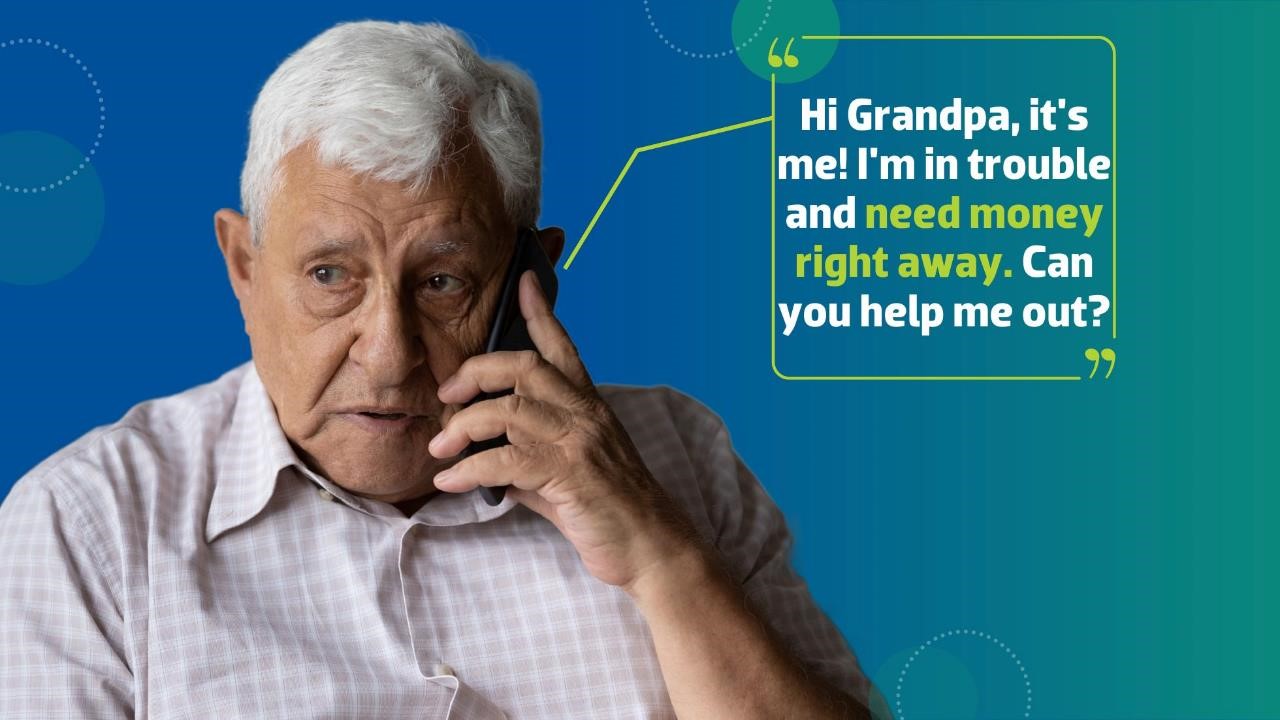Grandparent Scam
posted on Tuesday, January 7, 2025 in Fraud

The grandparent scam isn’t a new tactic. However, there has been a recent increase in fraudsters targeting the elderly by using artificial intelligence (AI) technology. Fraudsters continue to improve their strategy, making this scam all the more dangerous for the elderly population.
How does the Grandparent Scam work?
- Scammers are calling the elderly, pretending to be a family member in a crisis, and asking for financial assistance. With the use of artificial intelligence (AI) technology, the fraudster can now mimic voices to convince the victim that a loved one is in distress. Common situations being manipulated are that the grandchild is in the hospital, in legal trouble, or stuck in a foreign country.
- To protect the family member in trouble, the grandparent will be pressured to pay money. The caller will ask for bail money or gift cards to get the victim’s loved one out of the situation. Sometimes, scammers even show up at your door or send rideshare drivers to collect money
Why it works
You may think, “Why would a logical grandparent fall victim to this scam?” Most of us think and react logically, but fraudsters are trained experts in putting their victims in distress. Resist the urge to act immediately, even if the story is very dramatic or you’re scared for your loved one’s safety. Act with your head, not your emotions.
How to avoid falling for the scam?
- In the unlikely event that it is your grandchild, you need to make sure you know who you’re dealing with. Don’t let your guard down just because the number or caller ID looks familiar; scam artists can disguise their phone number and make it look like the call is coming from a trusted source (known as “spoofing”).
- Don't give the caller any information! If scammers don't already have your personal information, they'll try to pry for details that they can use to convince you it's your grandchild.
- Call a family member or friend and tell them what happened. They will likely know the real story and be able to confirm or deny what the caller has said. In all likelihood, your grandchild is safe and sound.
- Be cautious of requests for specific payment types! Scammers will typically ask you to wire money, send gift cards, or use payment apps, because they are more difficult to trace. This means it's nearly impossible to get your money back. If you end up in a conversation, use caution if you are pressured for information or to send money quickly.
How to report the scam?
If you have fallen victim to the Grandparent Scam, please contact Community 1st Credit Union at 866.360.5370 or stop by your local branch to speak with a C1st Representative.
You can file complaints with the FCC about unwanted calls and spoofing. You can also find information on imposter scams and file a consumer complaint with the Federal Trade Commission.